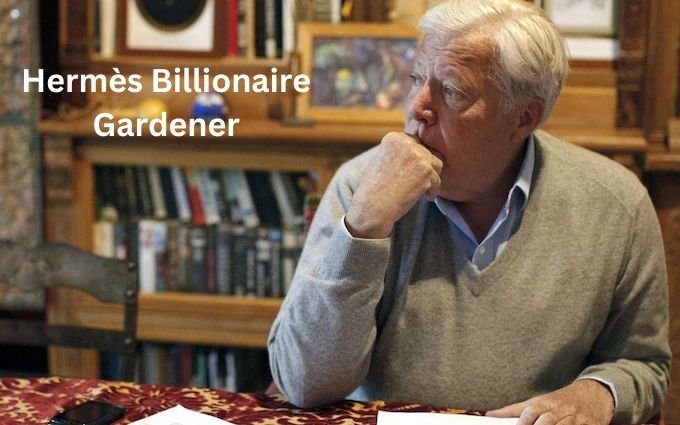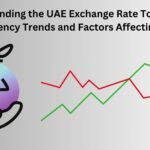Introduction to the Billionaire Gardener Concept
The phrase “Hermès billionaire gardener” brings together two seemingly disparate ideas: the world of luxury fashion and the personal pursuit of gardening and sustainability. On one side, you have Hermès, a high-end French brand synonymous with unparalleled craftsmanship, luxury, and timeless style. On the other, the notion of a billionaire gardener suggests an individual who has found both financial success and a deep connection with nature.
In recent years, this intersection between wealth, nature, and luxury has sparked considerable interest, as more high-net-worth individuals invest in sustainable land, organic farming, and eco-friendly gardening projects. The influence of Hermès and other luxury brands in this growing trend is subtle but significant, as many billionaires now incorporate environmentalism into their lifestyles.
The Rising Trend of Sustainability Among Billionaires
In the past, billionaires focused primarily on accumulating wealth through investments in sectors like technology, real estate, and finance. However, in the 21st century, many wealthy individuals have begun to prioritize sustainability and environmental conservation. This shift toward “green” investment has led to the rise of the “billionaire gardener” — someone who not only accumulates wealth but also uses their resources to create sustainable, eco-friendly environments.
For these individuals, gardening is not just a hobby; it has become a lifestyle choice that reflects their values. Billionaires like Bernard Arnault, the French tycoon behind LVMH (Louis Vuitton Moët Hennessy), have used their wealth to preserve and restore vast estates, including large gardens and agricultural lands that promote biodiversity and sustainability.
Hermès and Its Commitment to Sustainability
While Hermès is best known for its luxury products, such as the iconic Birkin bag and high-quality leather goods, the brand has also incorporated sustainable practices into its business model. Sustainability has become a key theme in the luxury industry, and Hermès has embraced this trend by focusing on ethical sourcing, environmental responsibility, and long-lasting craftsmanship.
The brand’s approach to sustainability aligns with the broader values of the modern luxury consumer. Hermès emphasizes the durability of its products, ensuring that items are not just fashionable but are also built to last. This philosophy resonates with the growing trend of “slow fashion,” where consumers opt for high-quality items that endure through the years rather than fast, disposable trends.
The Role of Luxury in Sustainable Gardening
For many billionaires, sustainable gardening is a natural extension of their commitment to quality and longevity. The trend of incorporating nature into luxury living has gained momentum in recent years, as wealthy individuals seek to create serene, eco-friendly spaces on their estates. These gardens are not just about beauty but about enhancing the environment, preserving natural habitats, and promoting sustainability.
Luxury properties with expansive gardens and organic farms have become symbols of wealth and a desire for personal fulfillment. Gardens are carefully curated to balance aesthetics with ecological principles. Whether it’s creating a self-sustaining vegetable garden, planting native species, or installing efficient irrigation systems, these gardens reflect the growing awareness of environmental issues.
How Gardening Connects with the Hermès Philosophy
The connection between Hermès and the concept of luxury gardening is more than just surface-level. The brand’s commitment to quality, longevity, and craftsmanship mirrors the principles found in sustainable gardening. For Hermès, luxury is about creating timeless pieces that retain value over time, whether those pieces are leather goods, silk scarves, or cultivated gardens.
For Hermès’ affluent clientele, the idea of a beautiful, sustainable garden aligns with their values. Much like Hermès’ fashion, which is designed to last for generations, gardens cultivated with a focus on sustainability are meant to endure. These gardens serve as lasting investments in both aesthetics and the environment. For these billionaires, gardening becomes an art form — an extension of the Hermès philosophy of enduring beauty.
Billionaire Gardeners: Real-World Examples
Several billionaires around the world have embraced the role of gardener, investing heavily in large, sustainable properties. One of the most notable examples is Bernard Arnault, the CEO of LVMH, who has a long history of investing in agricultural and horticultural projects. Arnault’s passion for gardening and sustainable farming extends to his vineyards in Bordeaux, where he integrates environmentally conscious practices into the production of wine. His love for nature goes beyond commercial ventures; it is a personal passion that contributes to the preservation of the environment.
Another example is Elon Musk, the CEO of Tesla and SpaceX, who has shown interest in sustainable agriculture. Musk has made efforts to promote sustainable farming methods on his properties, including organic gardening and regenerative practices. His ventures align with the broader trend of billionaires who are turning to sustainable gardening not only for personal enjoyment but also to help combat environmental degradation.
Sustainability in Luxury Real Estate and Gardening
Sustainable gardening is increasingly becoming an integral part of luxury real estate. High-net-worth individuals now view large estates as opportunities to merge beauty with environmental stewardship. By investing in eco-friendly landscaping and organic gardening, they create spaces that are both luxurious and responsible.
Luxury real estate developers are responding to this demand by incorporating sustainable gardens and agricultural systems into their properties. Whether it’s designing homes with rooftop gardens, using native plants, or installing water-efficient irrigation systems, these developments emphasize environmental consciousness. For buyers, these features not only add aesthetic value but also reflect a lifestyle that values sustainability.
Gardens as an Expression of Personal Values
For the “billionaire gardener,” a garden is not just a collection of plants; it is an expression of personal values. Sustainable gardening allows them to create spaces that reflect their dedication to environmentalism, biodiversity, and self-sufficiency. These gardens become extensions of their identities, serving as symbols of their wealth, creativity, and commitment to future generations.
Investing in a sustainable garden also allows billionaires to leave a lasting legacy. Much like the Hermès brand, which is built on the idea of creating timeless luxury items, sustainable gardens are designed to endure, offering beauty and ecological benefits for years to come. These gardeners view their work as part of a larger effort to protect the planet while enjoying the fruits of their labor.
The Future of Sustainable Luxury Gardening
As environmental issues continue to gain prominence, the intersection of luxury, gardening, and sustainability is poised for further growth. The future of luxury real estate will likely see even more emphasis on eco-friendly landscaping, sustainable agriculture, and energy-efficient home designs. Billionaires who embrace gardening as part of their lifestyle will continue to push the boundaries of what it means to create a sustainable, beautiful, and luxurious living space.
In addition, as the world becomes more conscious of the need to protect the environment, the demand for sustainable luxury products, including gardens, is likely to grow. Consumers will increasingly look for ways to integrate environmental stewardship into their daily lives, and billionaires will continue to set an example by investing in green spaces and sustainable practices.
Conclusion: Blending Wealth and Environmental Stewardship
The “Hermès billionaire gardener” embodies the blending of luxury with sustainability — a trend that is shaping the future of both the fashion and gardening industries. For billionaires, gardening is not just a pastime; it is a statement of personal values, a reflection of their wealth, and a desire to create a lasting legacy. Whether through the cultivation of expansive organic gardens or the preservation of natural habitats, these individuals are showing the world that luxury and sustainability can coexist in harmony.
As Hermès and other luxury brands continue to emphasize sustainability, the gardening projects of billionaires will likely remain an important part of this movement. The growing interest in eco-conscious, luxury gardening highlights the increasing desire for beauty, longevity, and environmental responsibility — all values that align perfectly with the Hermès ethos.
In a world where the importance of protecting the planet is becoming ever more urgent, the role of the billionaire gardener is becoming increasingly significant. Through their investment in sustainable gardening practices, these individuals are helping to pave the way for a future where luxury and environmental stewardship go hand in hand.



